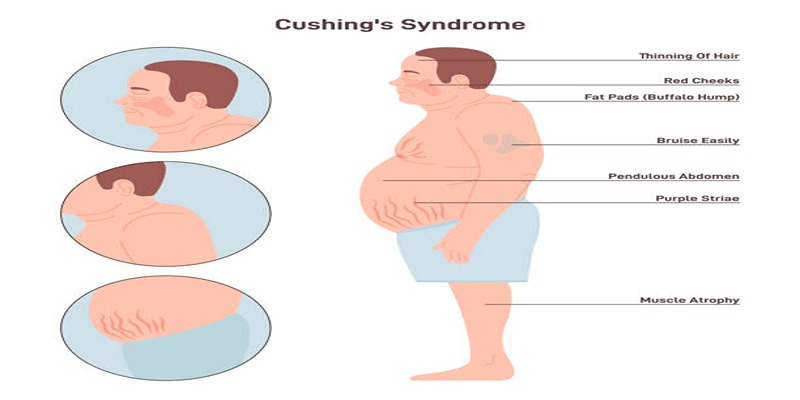Navigating Travel with Crohn’s Disease
Journeying can be thrilling yet difficult, particularly for persons dealing with a long-term sickness such as Crohn's disease. The anticipation of fresh experiences usually brings the worry about handling symptoms beyond the comfort zone of home. But through meticulous planning and readying, people suffering from Crohn's could find pleasure in their journeys while reducing unease and issues. This article gives useful advice for traveling, specially designed for patients with Crohn's disease to assist in making their journey pleasant and trouble-free.
Consult Your Healthcare Provider Before Traveling
Before you start any trip, it is important to talk with your healthcare professional. They will provide personalized advice based on your unique health needs and travel plans. Talking about where you plan to go gives room for guidance on how to handle Crohn's symptoms during the journey.
Your doctor might suggest you take some required vaccinations or medicines for your journey, and they can assist in adjusting the timings of your current medication according to the timezone where you will travel. It's good if you ask for a medical prescription too, just in case it is needed. Carrying a letter from your health service professional explaining your illness and what medications are being taken could be helpful when traveling outside country borders or during security inspections.
Plan Your Meals and Snacks Ahead of Time
The food you eat has a very important part in controlling Crohn's disease. If you are going on a trip, arranging your meals and snacks before can assist in steering clear of possible factors that could worsen symptoms. By looking into eating places at the place where you will be going to, it helps see which ones offer food suitable for what your body requires. If you hold certain preferences or limitations in your food intake, consider packing safe-to-eat snacks and meals that are convenient to carry.

Foods like low-fiber fruits, yogurt, or options without lactose could ease discomfort during travel. Also, remember to keep yourself sufficiently watered as lack of hydration can make symptoms worse. Drinking a lot of water is important, more so when you go to hotter places. If you possess a cooler that's good for travel, it can aid in maintaining the freshness of perishable products and ensure they are okay to eat.
Know Your Destinations' Facilities
Before going on a journey, it is necessary to know about the healthcare services in your destination place. Knowing where you can get medical help if there's an urgent situation gives calmness during your tour. It means identifying places like nearby hospitals, immediate care centers, or clinics for stomach and intestine diseases.
When you go to other countries, understanding how to talk with people who provide medical care in emergency cases can be advantageous. See if your health insurance includes coverage for travel outside of the country and find out whether there's a need for extra protection during your journey. Having a list that gives information on contacts for emergencies and local healthcare providers where you will stay could help when some health issues occur while traveling.
Stay Organized with Medications
Patients with Crohns disease need to keep medicines arranged and easy to reach. A travel pill organizer, used exclusively for this purpose, helps in keeping all your medicines together. It's suggested you should take medications in their original boxes as it reduces mix-ups or problems at custom checks.
Always make sure to bring additional medicine if you may be held up while traveling or encounter unexpected situations. Hold onto your medicines in your carry-on bag and not packed with the checked luggage, so that they are reachable during travel time. If any of your meds need cooling, think ahead about locations having fridge access or use a portable cooler for maintaining the required temperature.
Schedule Rest Breaks During Travel
Journeying can be very tiring, especially for persons suffering from Crohn's disease. To handle tiredness and strain, it is crucial to arrange frequent breaks for rest, no matter if you are on the road or in the air. Organize your travel plans with ample time dedicated to relaxation and recovery. If you are taking a long flight, it is advised to stand up and stretch your legs from time to time.

This will help blood circulation and stop any discomfort. If you're traveling by car, make plans for stopping every several hours for stretching or resting. Include your travel partners in planning these breaks. They can assist with the monitoring of rest times while also offering support when required. Allowing your body time to recharge can greatly improve your overall travel experience.
Prepared for Unexpected Situations
While making meticulous plans may aid in reducing problems, it is crucial to stay adaptable and ready for unforeseen circumstances. Crohn's symptoms can be erratic, hence the importance of mental and physical readiness for sudden intensifications. Having a compact emergency kit filled with things such as antacids, painkillers, and rehydration solutions could prove useful.
Knowing the location of the nearest toilet facilities can give you comfort during trips. You should tell your travel mates about your situation so they can help if you face any problems. Open talk like this can create a big change in the overall experience of your journey.
Communicate with Travel Companions
Before starting your journey, have a clear talk with those who travel with you about your health situation. Tell them any special requirements or signs they must know and how they can help you during the trip.
This discussion will build an understanding environment so everyone can enjoy traveling without extra worries. Your friends can help control tasks, making certain you take rests as necessary and offer emotional backing if signs come up.
Keep a Symptom Journal
Think about keeping a symptom diary while you travel to monitor your health and find out possible triggers. This could aid in recording what kind of food you eat, activities you are involved in, and any symptoms observed.
Looking back at this data after your journey lets you have better insight into how your body reacts to varying conditions, which can guide future travel schemes and assist with managing Crohns disease symptoms more efficiently.
Conclusion
Going on a journey when you have Crohns disease might seem difficult, but if you prepare well and stay aware, it is possible to take pleasure in your trip. Knowing what your body requires, preparing beforehand, and speaking transparently can contribute towards making travel more pleasurable. Be mindful that managing symptoms of Crohn's during trips could need some changes but it should not obstruct your capacity to discover new locations.












